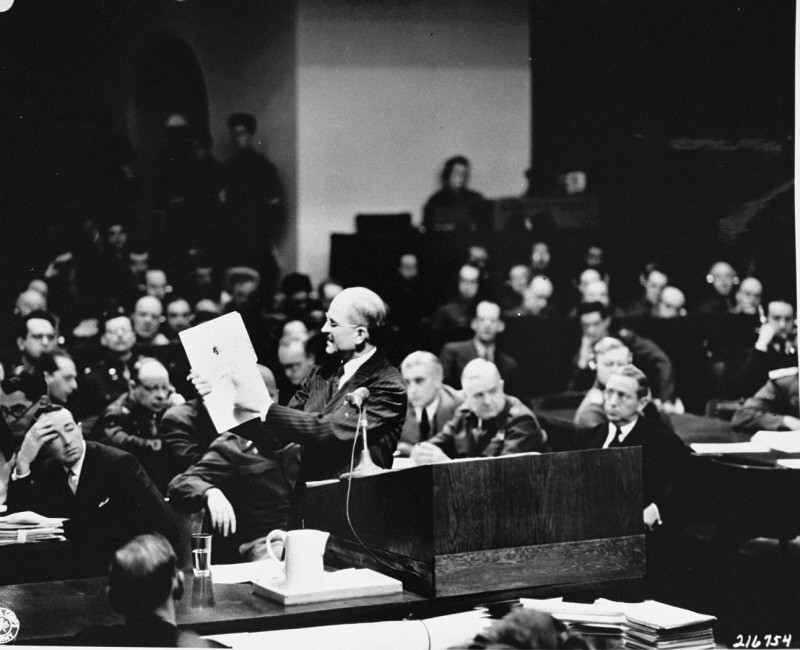
Who Tried the Case?
In the summer of 1945, representatives of the victorious Allied nations—the United States, Great Britain, France, and the Soviet Union—met in London to discuss the formation of an International Military Tribunal. The questions on the table were daunting: how and where such a court would convene, what the criminal charges would be, and which perpetrators would be put on trial.
US President Harry S. Truman issued an executive order designating Supreme Court Justice Robert H. Jackson to be the US representative and chief prosecutor. Though the British and the Soviets had previously opposed holding a trial, arguing that Nazi leaders should be summarily executed, all four powers at London were committed to a trial. After weeks of heated negotiations over jurisdiction, procedures, form, and choice of defendants, representatives of the four Allied countries signed an agreement setting the stage for an unprecedented court of law, the International Military Tribunal (IMT).
In total, 51 members from four national prosecution teams argued before the IMT, and hundreds of others other worked in the Documentation Division, the Interrogation Division, Special Projects Division, and as support staff for the trial.
Critical Thinking Questions
- Beyond the verdicts, what impact can trials have?
- How were various professions involved in implementing Nazi policies and ideology? What lessons can be considered for contemporary professionals?
- How did national histories, agendas, and priorities affect the effort to try war criminals after the war?
- The International Military Tribunal at Nuremberg is among the best known postwar trials. Investigate trials conducted by other countries after the Holocaust.
- Is it ever too late for accountability?

